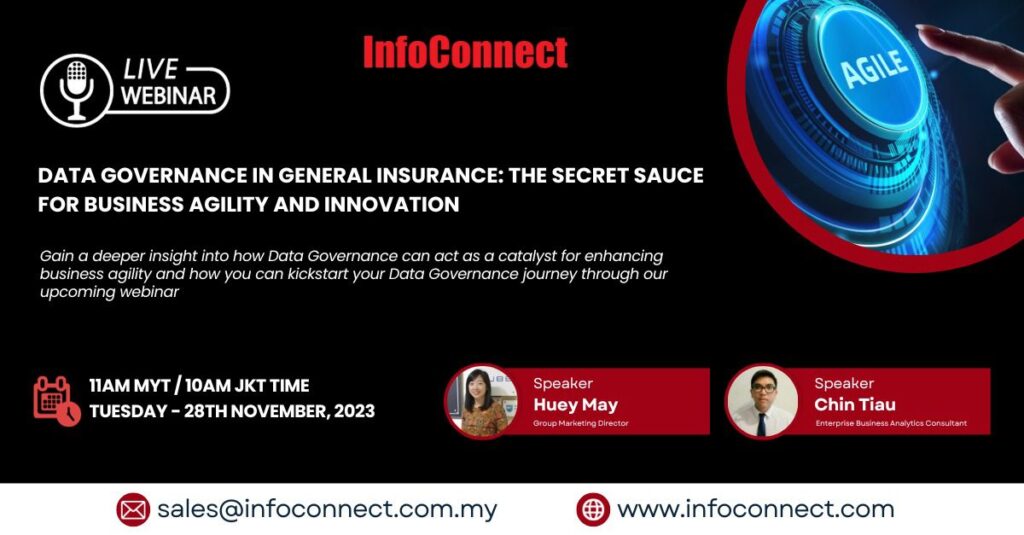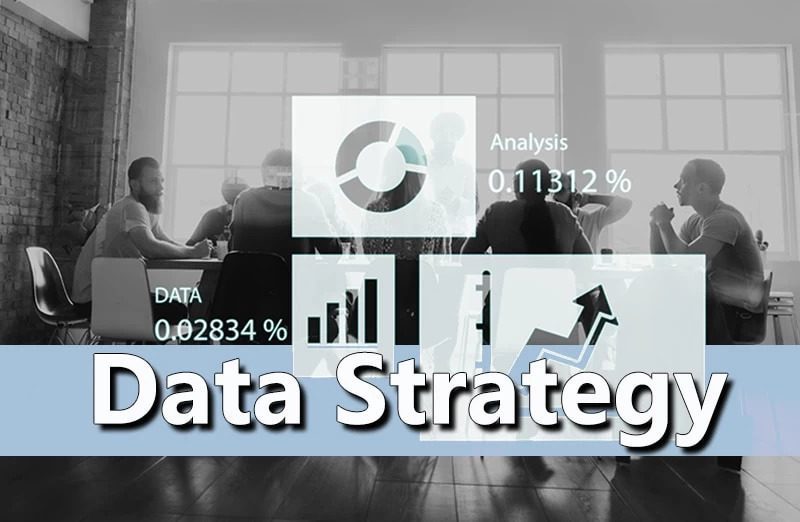
Solutions
Data and Information Management
Our Expertise
Data Standardization & Cleaning
Data Assessment, Quality Check / Validation, Improving Data Interoperability and Usability
Data Integration
Digitalization, Synchronization and Consolidation of Data Sources
Data Warehouse
Extract Transfer & Load (ETL), Data Staging, Data Modeling
BI & Data Visualization
Self-service Analytics, Data Mining, Reporting & Dashboards, Scorecards
Predictive Analysis
Data Diagnostics, Descriptive, Prescriptive & Predictive Analytics, Forecasting Models
Strategy & Consultation
Strategic Decisions, Consultation, Business Plan of Action
Unleash The Potential Of Your Business Data
With a fast-changing business landscape, compounded by events such as a pandemic, the push for business insights to boost revenue and to manage costs become an even greater priority for sustenance, survival, and to stay ahead of the competition. And getting those business insights quickly to make timely decisions to seize opportunities that may arise out of circumstances require an integrated or unified data management platform – whether on-premise or on cloud – that is able to provide data that is readily usable by the business users.
 Data – whether structured, semi-structured and un-structured – is the fuel for any applications to run. And the quality of the data influences the computational outcome which will then have a consequential effect in terms of the quality of the decisions made. To help our customers accelerate data-driven initiatives such as providing quality business-ready data, we offer a unified data management platform that is designed and developed to meet the ever-increasing demand for digital data services for reporting, analytics and artificial intelligence.
Data – whether structured, semi-structured and un-structured – is the fuel for any applications to run. And the quality of the data influences the computational outcome which will then have a consequential effect in terms of the quality of the decisions made. To help our customers accelerate data-driven initiatives such as providing quality business-ready data, we offer a unified data management platform that is designed and developed to meet the ever-increasing demand for digital data services for reporting, analytics and artificial intelligence.

Data Governance
Data Governance is a data management program consisting of corporate policies, standards, processes, people, and technology that helps to manage data as an enterprise asset to sustain high quality of data as a key source to business applications such as Analytics and Artificial Intelligence. It allows companies to:
- govern their data and data movement processes by exposing, and relating, all types of data and applications, to the business processes, rules, and initiatives, that use that data; and
- allows analysts and consumers to find and examine assets based on their usage and business purpose, without technical skills and knowledge of back-end systems.
Key Capabilities
- Establish a centralized common Business Glossary
- Apply Governance Policies and Rules
- Define Business Processes and Applications using Custom Attributes
- Analyze Data and Business Lineage Graphs and Reports
Because data governance is a broad subject that covers all areas of the business that uses data, it is recommended to adopt an agile approach with a scope that is limited to only a few subject areas that impact cross functional business activity, such as Customer. Such an approach helps to:
- Mitigate implementation risks;
- Shorten the implementation duration;
- Provide a learning experience to evaluate & improve from one iteration to the next; and
- Encourage active collaboration between IT, business subject experts, and business users.
Data Quality
Data being fuel to critical business applications is an asset that needs to be managed as it moves through an organization. As the volume of data is growing as a result of data coming in from numerous data sources, the need to integrate, access and reuse information from these disparate sources consistently and trustfully becomes more critical. With the implementation of a data quality solution, data integrity can be enhanced to get the most from your data by understanding the data defects and the implications of the defects to the business. Approaches to fixing data defects includes understanding your data via data assessment or data profiling, and data cleansing methods through standardization, enhancement, and data matching & correction.
With built-in monitoring capabilities, you can:
- Assess and monitor the quality of your data in any place and across systems
- Align quality indicators to business policies
- Engage data steward team when issues exceed thresholds of the business
- Integrate data quality measurements as part of data governance

Our experts at BPI Technologies have been accredited under the IBM Professional Certification Program
Check out our digital badges from IBM to see our credentials and capabilities in a range of IBM technologies.

Data Integration
Because your analytics application initiative demands fast access to high quality data, the main objective of data integration is to deliver trusted information to mission-critical business initiatives such as big data and analytics, data warehouse modernization, master data management and point-of-impact analytics. It is also to help meet information integration requirements, from data integration supporting multiple integration styles to data quality and data governance for data lineage from source to target. It should also be able to provide flexibility on how to integrate your data and at what latency, as well as cater to high scalability across variety and volume of data.
Key Capabilities
Connect
- Connect to wide range of traditional enterprise data sources as well as Hadoop data sources
- Native connectors with highest level of performance and scalability for key data sources
Design & Transform
- Transform and aggregate any data volume
- Benefit from hundreds of built-in transformation functions
- Leverage metadata-driven productivity and enable collaboration
Manage & Monitor
- Use a simple, web-based dashboard to manage your runtime environment
Our Unified Data Management Platform strives to provide our customers with:
- Improved Business Decision-Making by providing quality data that is use-able and business-ready.
- Improved Revenue by ensuring data is cleaned, standardized, and governed by data rules. For example, cash flow being negatively impacted because billings are going to the wrong customer addresses, or the cost impact of duplicate data in your customer master database.
- Improved Customer Acquisition related activities using advanced algorithms such Predictive & Prescriptive Analytics.
- A foundation for Data Architecture Modernization that drives business innovation through Analytics & AI applications that fits in well as containers managed by Kubernetes service support – Red Hat OpenShift – running on:
- IBM Cloud™
- Amazon Web Services (AWS)
- Microsoft Azure
- Google Cloud Platform
Contact Us Now For A Demo!
Latest Posts
Unlocking the Potential of Enterprise Business Analytics in 2025: Transforming Malaysia’s Digital Future
Introduction: In 2025, enterprise business analytics is at the forefront of Malaysia’s digital transformation. As businesses face the challenge of…
Data Governance in General Insurance: The Secret Sauce for Business Agility and Innovation.
Watch on demand Overview Data Governance in General Insurance: The Secret Sauce for Business Agility and Innovation. Join this webinar…
Unlocking Your Business Potential: The Power of Data-Strategy
Introduction: In this data-driven world, organizations are constantly bombarded with a massive influx of information and data. IBM states that…
Our experts at BPI Technologies have been accredited under the IBM Professional Certification Program
Check out our digital badges from IBM to see our credentials and capabilities in a range of IBM technologies.



